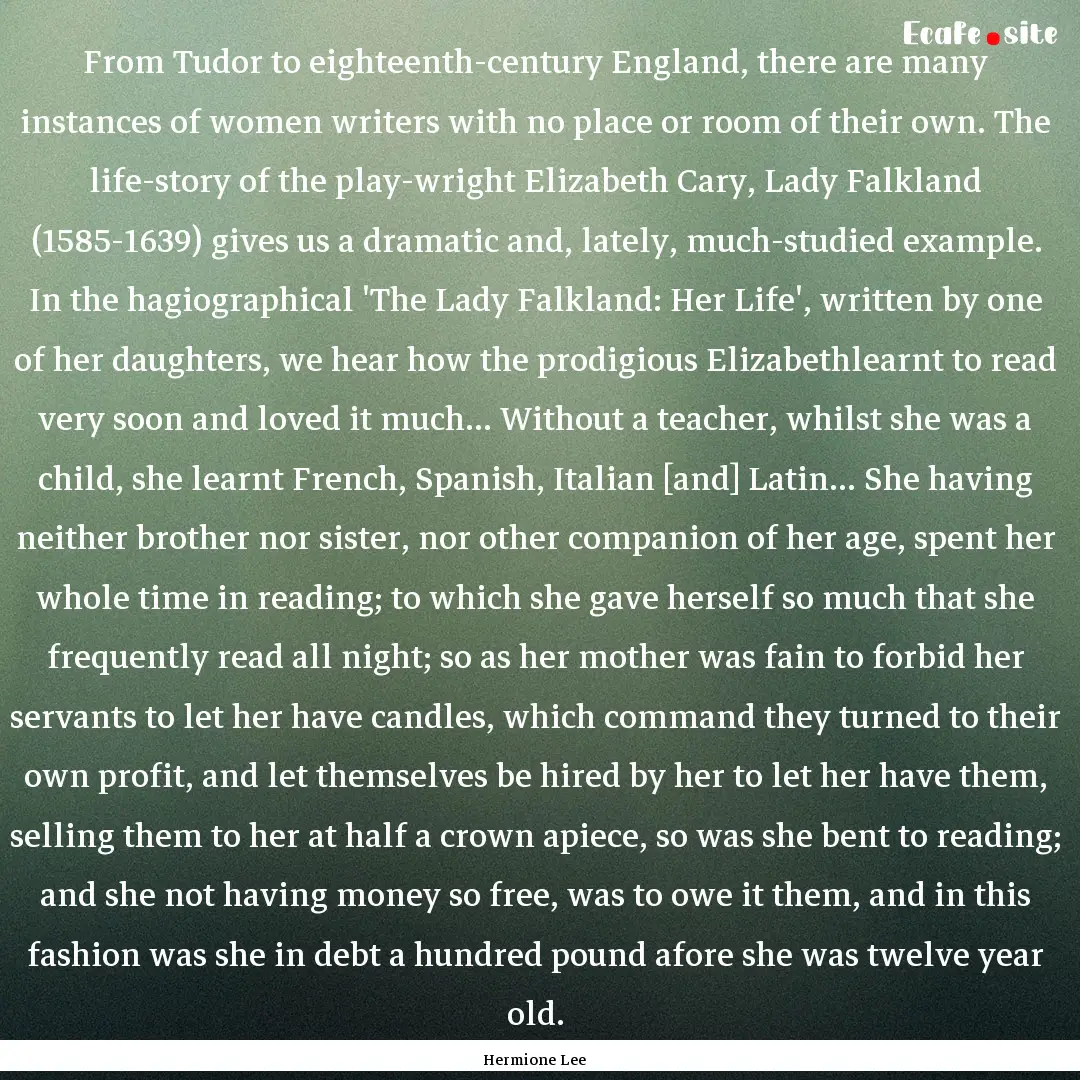
Report, if you have a problem with this page“ From Tudor to eighteenth-century England, there are many instances of women writers with no place or room of their own. The life-story of the play-wright Elizabeth Cary, Lady Falkland (1585-1639) gives us a dramatic and, lately, much-studied example. In the hagiographical 'The Lady Falkland: Her Life', written by one of her daughters, we hear how the prodigious Elizabethlearnt to read very soon and loved it much... Without a teacher, whilst she was a child, she learnt French, Spanish, Italian [and] Latin... She having neither brother nor sister, nor other companion of her age, spent her whole time in reading; to which she gave herself so much that she frequently read all night; so as her mother was fain to forbid her servants to let her have candles, which command they turned to their own profit, and let themselves be hired by her to let her have them, selling them to her at half a crown apiece, so was she bent to reading; and she not having money so free, was to owe it them, and in this fashion was she in debt a hundred pound afore she was twelve year old. ”

Hermione Lee
From : Body Parts: Essays on Life-Writing



